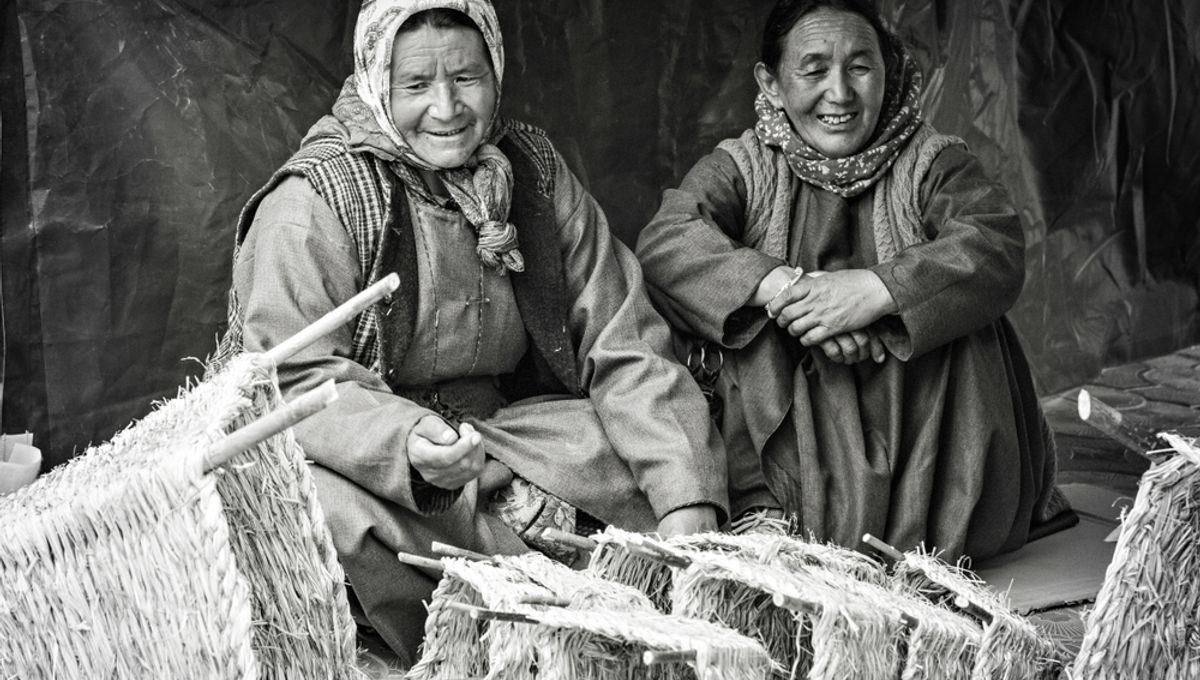Thanks to medical and technological advances, more and more people are able to survive and live longer, healthier lives. Does this make evolution irrelevant?
In its most basic sense, evolution refers to the process of genetic change in a population over time. It occurs because gene variants are more likely to survive and thrive if they provide the organism with an advantage over others, making it more likely that they will survive and reproduce – thus passing on their traits to future generations.
This process has played an important role in our survival as a species. Through evolution, our human ancestors developed a slew of traits that made them better suited to their environment, whether that’s the ability to recover more quickly from illness, fend off hungry predators, or acquire juicier berries than their neighbors.
A famous example is the (literally) breathtaking ability of members of the Bajau Laut tribe, who can hold their breath for minutes. This incredible feat allows them to reach levels of more than 70 meters (230 feet) underwater without diving equipment when collecting seafood. Other genetic variants have provided protection to people with mutations in diseases such as malaria, tuberculosis and leprosy.
However, with the advent of technologies and medicines that allow us to live longer, healthier lives, many have wondered what role evolution in the traditional sense will play in our development as a species. Even biologist, broadcaster and British national treasure Sir David Attenborough has expressed his doubts.
“We stopped natural selection as soon as we could raise 90-95% of our babies born. We are the only species that has stopped natural selection, as it were of our own free will,” he told the Radio Times, the media reported at the time.
So will we continue to evolve when the selection pressures that influenced our ancestors are no longer a life and death situation? According to recent studies, the answer is yes.
One of the factors driving contemporary evolution is culture, which can influence sexual selection. This refers to preferences that influence who we find attractive and with whom we want to reproduce, and which can take effect within a relatively short time.
“If a genetically determined trait, such as hair color, becomes more or less common from one generation to the next, that is considered an evolutionary change,” Scott Solomon, an evolutionary biologist at Rice University, previously told IFLScience.
“That’s often different than what the average person on the street would think about evolutionary change. It doesn’t necessarily mean that new traits will emerge, it may just mean that existing traits will become more or less common.”
An example of this is highlighted by a study published in 2015, which found that sexual selection in the Netherlands has favored tall men in recent decades. Dutch men are among the tallest in the world today, but this was not the case in the eighteenth century, when the average height of Dutch soldiers was 165 centimeters – less than that of men in the United States and many other European populations. In just 150 years, or a few generations, Dutch men have added about 8 inches to their height due to natural selection, overtaking men in the US and much of the world.
Another recent example of natural selection was sparked by the emergence of a new deadly virus, HIV. According to YourGenome, the number of genetic variants that provide a protective benefit against the virus is increasing in the most affected regions, such as South Africa. It is thought that with the adaptation, mothers are more likely to survive an infection and can therefore pass it on to their children.
So even though the cause of the evolutionary process may change over time, it doesn’t seem like it will stop anytime soon.
